Meet Mouna, a Pvtiste who embarked on an exciting journey to Canada with her family on a Working Holiday permit. At 40, with a husband and two kids in tow, Mouna's adventure began with a leap of faith into the Quebec job market, where she and her husband, both IT professionals, quickly secured positions. Her narrative is not just about work; it's a heartfelt account of integrating into Quebecois society, embracing the cultural nuances, and building a new life overseas. From the challenges of securing work permits for her family to the joys of buying a home and welcoming a new member into their family in Canada, Mouna's story is a rich tapestry of personal and professional triumphs. Curious about how they navigated the complexities of immigration or what life in Quebec feels like? Dive into Mouna’s full story for a dose of inspiration and practical insights!
pvtistes
Hi, can you please introduce yourself?
I’m Mouna. I’ll be turning 40 soon. I’m married and we have two kids.
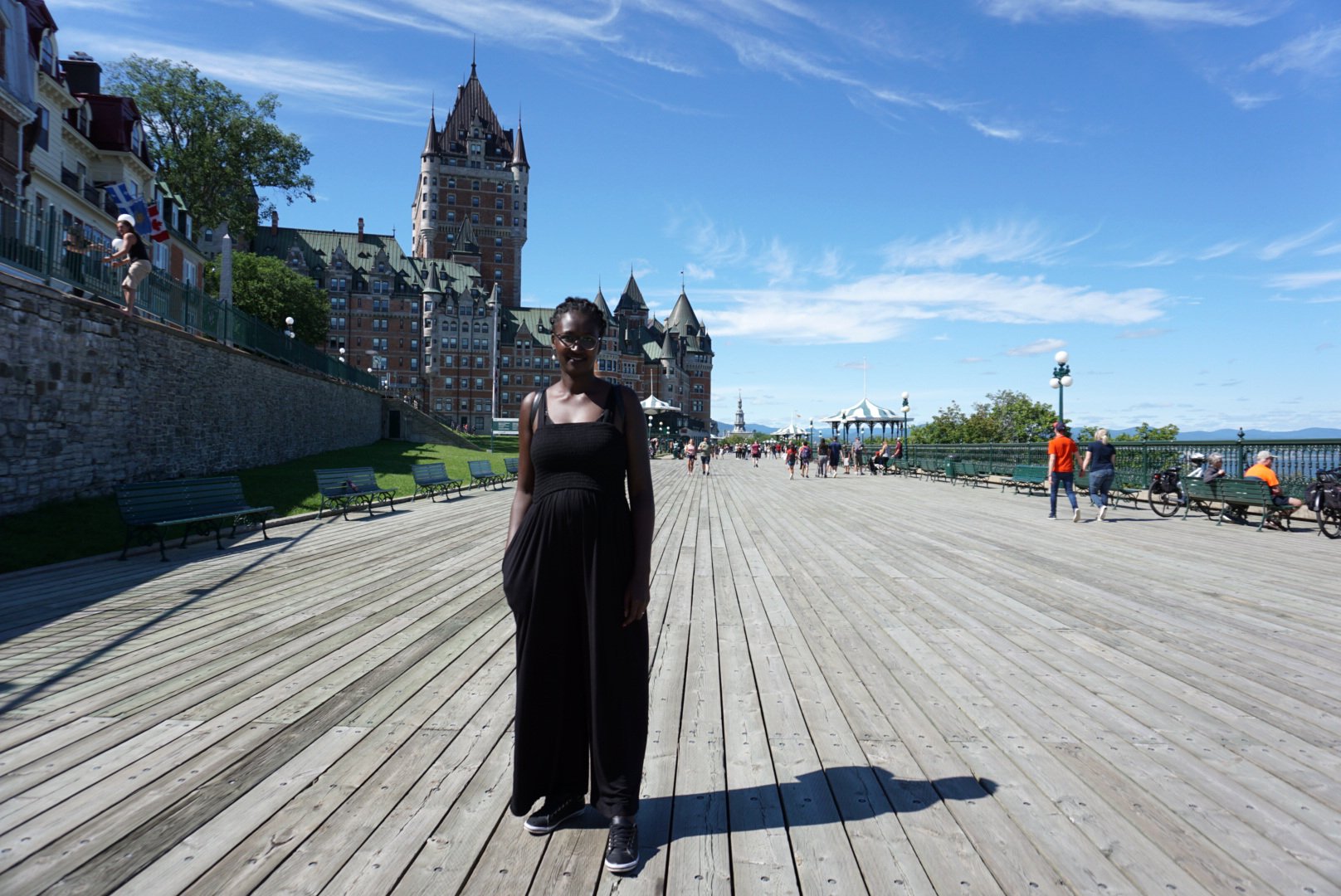

pvtistes
In 2018, you decided to go to Canada on a Working Holiday permit. Why this destination?
I’ve always been interested in going to Canada. I remember joking around with my sisters every time there was a feature on Canada in the media—“One day, I’ll go!” I’d say. It’s the gorgeous landscapes, the fondness the French have for the people of Quebec and the fact that French is the province’s official language. I found the latter intriguing. When I was young, I assumed that everybody spoke English in North America—but guess what, there’s a province on this continent where everyone speaks French just like us in France.
I talked to my husband often about going to Canada as well, and I started to read up on the country. I mostly focused on Quebec to avoid the language barrier. And then one day I said to myself, “Okay, doing research is great, but now we need to actually do something and start somewhere to eventually decide whether we’re going or not.” Our daughter was going to start Grade 1 in 2018. After several discussions with my husband, we said “Eh, why not?”
This was in August 2017. I had heard about the Working Holiday permit and I was going to turn 35 in 2018. I submitted my profile to a pool without telling my husband (he was over the age limit to apply for a Working Holiday permit). My application was accepted in September 2017—I had 12 months to activate my permit. We were super happy.
I talked to my husband often about going to Canada as well, and I started to read up on the country. I mostly focused on Quebec to avoid the language barrier. And then one day I said to myself, “Okay, doing research is great, but now we need to actually do something and start somewhere to eventually decide whether we’re going or not.” Our daughter was going to start Grade 1 in 2018. After several discussions with my husband, we said “Eh, why not?”
This was in August 2017. I had heard about the Working Holiday permit and I was going to turn 35 in 2018. I submitted my profile to a pool without telling my husband (he was over the age limit to apply for a Working Holiday permit). My application was accepted in September 2017—I had 12 months to activate my permit. We were super happy.
pvtistes
What did you do in Canada as a Working Holiday permit holder?
We had to get a job before moving to Quebec permanently. We both work in Information Technology, specifically cybersecurity—a high-demand occupation so we knew we could get hired quickly. Two months before the permanent move, we travelled to Canada to activate my Working Holiday permit and get a head start on job hunting.
I managed to find a job, so we weren’t worried about the rest of the process.
I also registered my daughter for Grade 1.Our goal was to allow our daughter to experience other cultures, get out of our comfort zone and try out other opportunities abroad. We weren’t disappointed by the warm welcome we received from Quebecers, and we enjoyed lots of activities, summer and winter alike. We explored Montreal and the whole of Quebec, and we enjoyed both.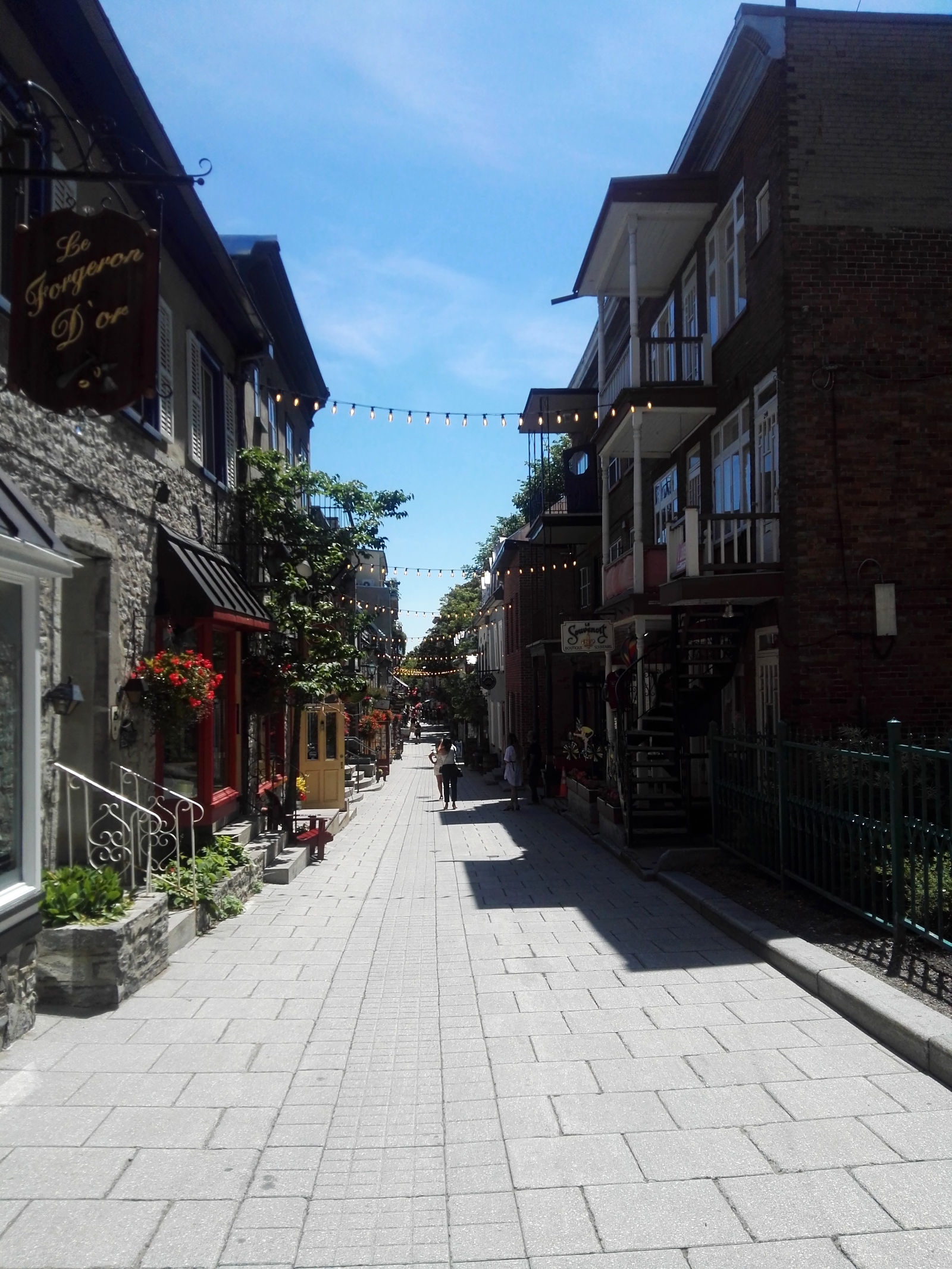
I managed to find a job, so we weren’t worried about the rest of the process.
I also registered my daughter for Grade 1.Our goal was to allow our daughter to experience other cultures, get out of our comfort zone and try out other opportunities abroad. We weren’t disappointed by the warm welcome we received from Quebecers, and we enjoyed lots of activities, summer and winter alike. We explored Montreal and the whole of Quebec, and we enjoyed both.

pvtistes
Your husband and daughter didn’t have Working Holiday permits. How did they manage to come along?
I activated my 24-month Working Holiday permit at the airport. My daughter got a visitor’s permit for the same duration as my Working Holiday permit, i.e. 2 years, and my husband entered Canada with a 6-month visitor permit. My daughter was six and a half, so she didn’t need a study permit to attend Grade 1—a visitor status was enough.
My husband had to wait for me to get three payslips to apply for a work permit. Pay slips are issued every two weeks, so we were able to go flagpoling by October—we went to the U.S. border and then turned around to re-enter Canada. We had to wait for at least four hours to re-enter but he was issued a work permit valid until the end of my Working Holiday permit.
My husband had to wait for me to get three payslips to apply for a work permit. Pay slips are issued every two weeks, so we were able to go flagpoling by October—we went to the U.S. border and then turned around to re-enter Canada. We had to wait for at least four hours to re-enter but he was issued a work permit valid until the end of my Working Holiday permit.
Read IEC Canada—Spouse or Common-Law Partner Open Work Permit 101 to understand the process!
pvtistes
Did you find the Working Holiday application and then the permanent residency process difficult?
Not really. I’m pretty organized and I’m the one who handles paperwork at home, so I generally document myself and make sure I don’t forget anything—missing something is the biggest pitfall with applications like the CSQ and permanent residency.
There are a lot of documents to gather and many forms to fill out, but nothing too complicated. However, some patience is required. For example, it took seven months to get my permanent residency card.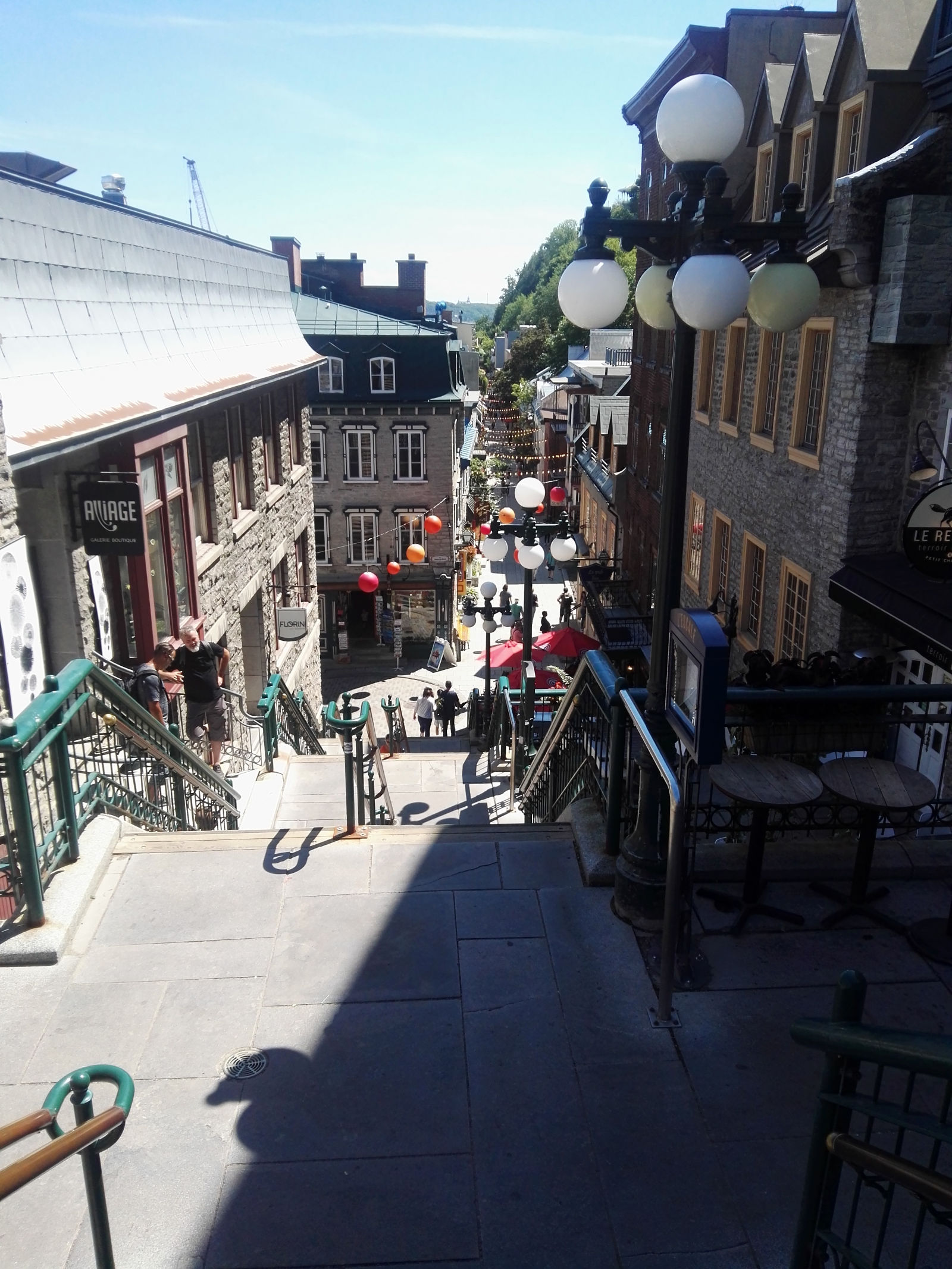
There are a lot of documents to gather and many forms to fill out, but nothing too complicated. However, some patience is required. For example, it took seven months to get my permanent residency card.

pvtistes
As an IT security professional, how easy was it to find a job and how is your career going compared to France?
I’ve been working in Canada as an information security consultant since September 2018. I contacted companies before going to Canada to get this first job—I went for interviews during my initial two-week visit to Montreal. My first interview took place in a café. It was a unique setting and a no-pressure meeting, which I really appreciated.
My first job was with a small cybersecurity company. I had to help companies in and outside Quebec with compliance and the implementation of security tools. I worked there for a year and a half. This first experience was very rewarding because I met people from all walks of life and I also used English at work when dealing with other Canadian provinces.
This first experience also helped me to adapt to the way people work in Quebec—a better attempt at work/life balance, an easier daily schedule, and many happy hours and team-building events, which contribute to a good atmosphere and great team communication.
Then I worked at a media company—a completely different type of organization, but an equally rewarding and interesting experience. I was working a lot more in French and with people in Quebec. But unfortunately, with the pandemic, we weren’t able to see each other in person. Still, we had a virtual social life and I managed to build relationships with a few people. Work-from-home took over, so like everyone else, we had to learn to do things differently. My company supported employees through the change and everything worked out very well.
It’s not difficult to change jobs here and no, it’s not frowned upon—quite the opposite, actually, seizing opportunities is a way to gain experience. This is my third position in Quebec and I can say that you need a first job in Canada and about 12 months of experience here to be contacted by headhunters. Obviously, I’m in IT, where professionals are very much in demand, so it helps. And once part of a company, you’re given the chance to grow. Employers ask what you like to do and what you don’t, and you’re offered opportunities fairly quickly.
I appreciate how fast and easy professional growth is here. It just wasn’t the same in France. Employers in Quebec don’t just look at your formal education. They are willing to give applicants a chance and then it’s up to you to show your worth.
Compensation packages are also very attractive. We’re well paid and it’s not difficult to negotiate your salary or a raise. As a civil servant in France, I was used to a hierarchical structure. On the other hand, in Quebec, senior managers are very hands-on. It’s normal to use “tu” and be on a first-name basis with the higher-ups, which makes communication less formal and more relaxed.
My first job was with a small cybersecurity company. I had to help companies in and outside Quebec with compliance and the implementation of security tools. I worked there for a year and a half. This first experience was very rewarding because I met people from all walks of life and I also used English at work when dealing with other Canadian provinces.
This first experience also helped me to adapt to the way people work in Quebec—a better attempt at work/life balance, an easier daily schedule, and many happy hours and team-building events, which contribute to a good atmosphere and great team communication.
Then I worked at a media company—a completely different type of organization, but an equally rewarding and interesting experience. I was working a lot more in French and with people in Quebec. But unfortunately, with the pandemic, we weren’t able to see each other in person. Still, we had a virtual social life and I managed to build relationships with a few people. Work-from-home took over, so like everyone else, we had to learn to do things differently. My company supported employees through the change and everything worked out very well.
It’s not difficult to change jobs here and no, it’s not frowned upon—quite the opposite, actually, seizing opportunities is a way to gain experience. This is my third position in Quebec and I can say that you need a first job in Canada and about 12 months of experience here to be contacted by headhunters. Obviously, I’m in IT, where professionals are very much in demand, so it helps. And once part of a company, you’re given the chance to grow. Employers ask what you like to do and what you don’t, and you’re offered opportunities fairly quickly.
I appreciate how fast and easy professional growth is here. It just wasn’t the same in France. Employers in Quebec don’t just look at your formal education. They are willing to give applicants a chance and then it’s up to you to show your worth.
Compensation packages are also very attractive. We’re well paid and it’s not difficult to negotiate your salary or a raise. As a civil servant in France, I was used to a hierarchical structure. On the other hand, in Quebec, senior managers are very hands-on. It’s normal to use “tu” and be on a first-name basis with the higher-ups, which makes communication less formal and more relaxed.
pvtistes
You gave birth to your second kid in Canada. How was your pregnancy experience? Did you notice any differences with France, and can you tell us more about them?
I gave birth to a baby boy in Quebec. Over the nine months, I had regular appointments with very competent and understanding midwives. Everything was great.
The labour and delivery process also went very well. One difference with my experience in France was the support I got in Quebec. A nurse was there to take care of me from beginning to end, and she helped me a lot to ease contraction pain.
The father’s involvement was just as important. The midwives asked him to be involved throughout delivery and labour—holding my hands during the epidural, and helping with positions to relieve pain… In France, he was sidelined until the first cry.
For neonatal and post-partum follow-up, I was lucky enough to be able to find a family doctor close to home—as you probably know, family doctors are thin on the ground here. Everything went smoothly. The difference with France is that my son was vaccinated at a local community service centre, not by our family doctor.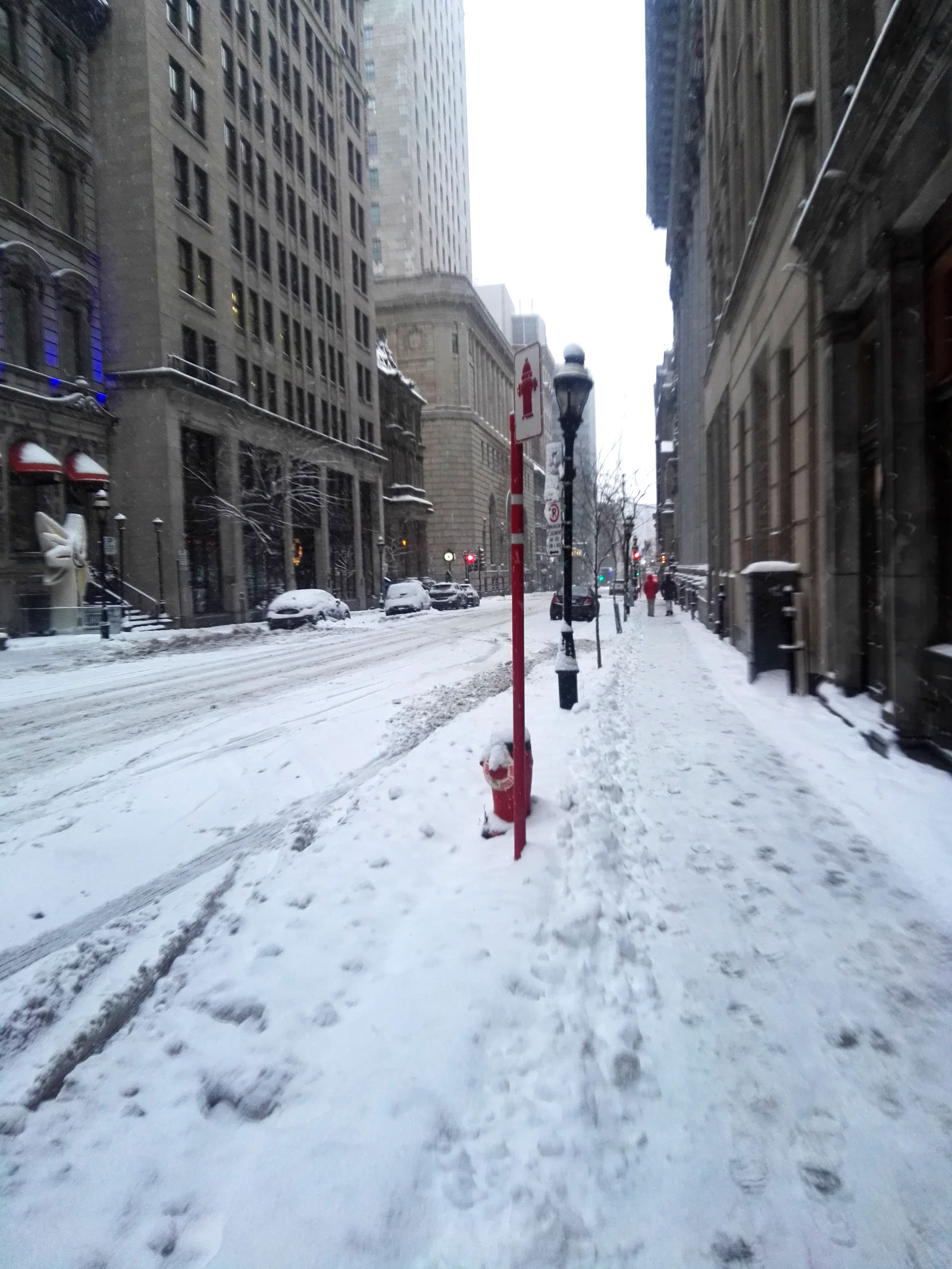
The labour and delivery process also went very well. One difference with my experience in France was the support I got in Quebec. A nurse was there to take care of me from beginning to end, and she helped me a lot to ease contraction pain.
The father’s involvement was just as important. The midwives asked him to be involved throughout delivery and labour—holding my hands during the epidural, and helping with positions to relieve pain… In France, he was sidelined until the first cry.
For neonatal and post-partum follow-up, I was lucky enough to be able to find a family doctor close to home—as you probably know, family doctors are thin on the ground here. Everything went smoothly. The difference with France is that my son was vaccinated at a local community service centre, not by our family doctor.

pvtistes
You also bought a home in Canada. How did that go?
Just recently, we left Montreal where we had just spent the last 4.5 years to buy a house in the greater Montreal area. The real estate market in Montreal wasn’t right for us. House prices had risen considerably, not to mention interest rates.
Everything went very quickly, from researching options to the actual buying process, and we were given excellent support and very clear explanations.
In April 2023, we contacted a real estate agent to arrange viewings. We had already picked a neighbourhood and we had several requirements in mind. He called back saying he wanted to show us a home the following weekend. Meanwhile, we secured pre-approval from the bank. This document highlights the maximum amount the bank is guaranteed to lend and it gives both sellers and agents peace of mind.
We didn’t end up making an offer on the first home because it didn’t meet all our requirements. We went to see a second home the following weekend. We made an offer that Sunday and it was accepted the next day. We submitted our loan application on Tuesday, it was accepted on Wednesday and we signed the papers on Thursday. So we bought a home in less than two weeks.
The move was scheduled for the end of June, so that’s when we signed the deed of sale at the notary’s office and got the keys the same week.
The home-buying process was very quick and straightforward—we signed the documents online, and both the real estate agent and mortgage broker were very available to answer our questions.
Everything went very quickly, from researching options to the actual buying process, and we were given excellent support and very clear explanations.
In April 2023, we contacted a real estate agent to arrange viewings. We had already picked a neighbourhood and we had several requirements in mind. He called back saying he wanted to show us a home the following weekend. Meanwhile, we secured pre-approval from the bank. This document highlights the maximum amount the bank is guaranteed to lend and it gives both sellers and agents peace of mind.
We didn’t end up making an offer on the first home because it didn’t meet all our requirements. We went to see a second home the following weekend. We made an offer that Sunday and it was accepted the next day. We submitted our loan application on Tuesday, it was accepted on Wednesday and we signed the papers on Thursday. So we bought a home in less than two weeks.
The move was scheduled for the end of June, so that’s when we signed the deed of sale at the notary’s office and got the keys the same week.
The home-buying process was very quick and straightforward—we signed the documents online, and both the real estate agent and mortgage broker were very available to answer our questions.
pvtistes
What do you see as the biggest differences between Canada and France?
For me, the biggest differences between Canada and France are the culture, the language and the accent. It really takes some time to get familiar with the unique Quebec accent, but after five years, I’d say I’m really used to it. As for the language, even though we speak French here, there are still expressions I don’t know. But once again, it’s a learning process and I’m surrounded by Quebec people at work.
The education system is very different. My daughter is in Grade 6 and I’m still finding it hard to compare the Quebec curriculum to the French one. School is less formal, more relaxed, and more tuned to students’ needs. It also relies heavily on the teachers. Kids have a lot of homework.
The professional environment is also very different, with less hierarchy, managers who are always available, higher salaries and opportunities to fast-track your career.
Food is very expensive. You can find everything, even French products, although I still miss certain items that I’d like to find here. The people of Quebec are very open and welcoming, and we live in a very diverse country.
Winters are long and extremely cold, with lots of snow. It’s still my favourite season. Summer is very hot and humid compared with France, where it’s drier.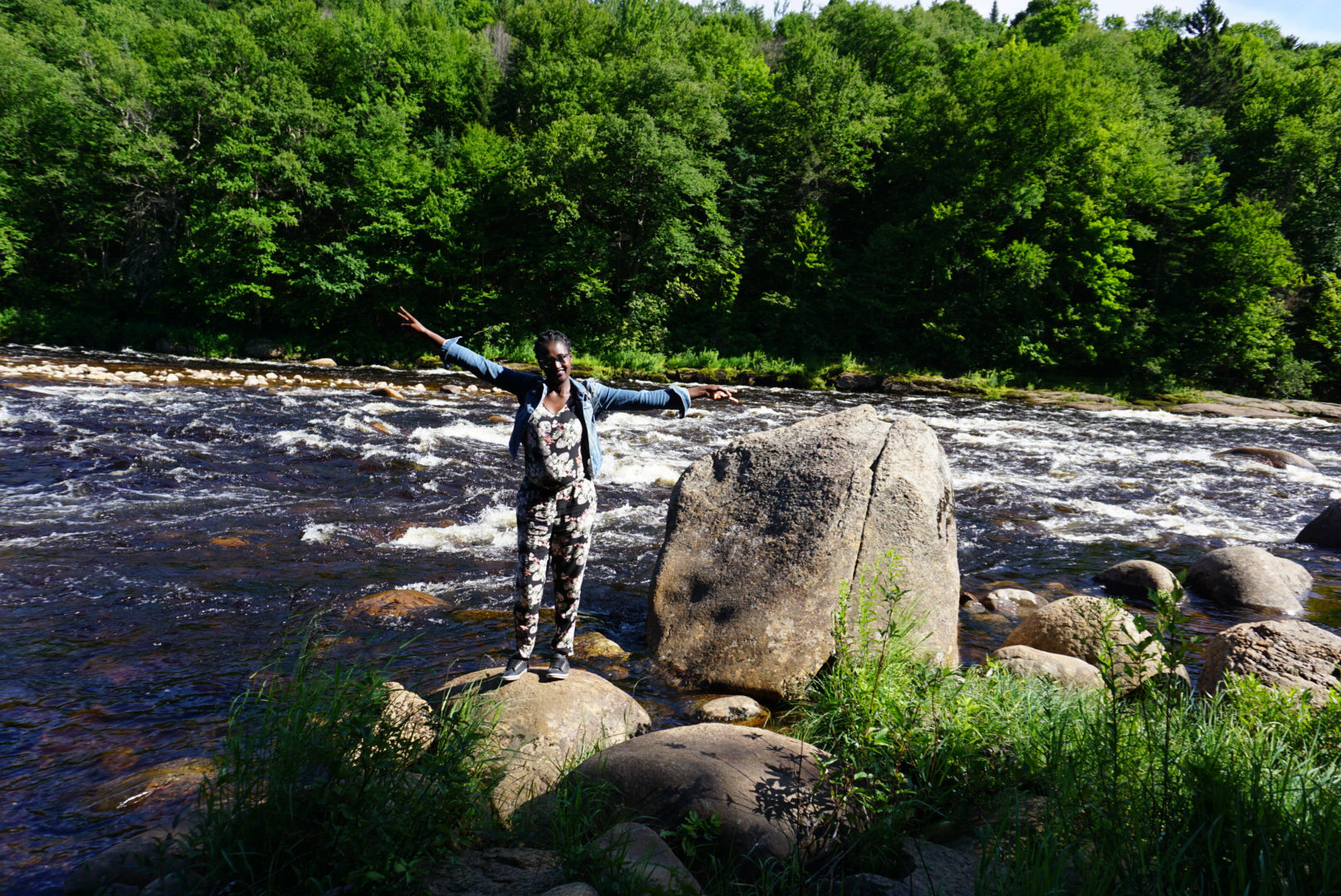
The education system is very different. My daughter is in Grade 6 and I’m still finding it hard to compare the Quebec curriculum to the French one. School is less formal, more relaxed, and more tuned to students’ needs. It also relies heavily on the teachers. Kids have a lot of homework.
The professional environment is also very different, with less hierarchy, managers who are always available, higher salaries and opportunities to fast-track your career.
Food is very expensive. You can find everything, even French products, although I still miss certain items that I’d like to find here. The people of Quebec are very open and welcoming, and we live in a very diverse country.
Winters are long and extremely cold, with lots of snow. It’s still my favourite season. Summer is very hot and humid compared with France, where it’s drier.

pvtistes
How did your family react when you told them you were moving to Quebec? And how are you coping with being away from home?
My loved ones were sad, of course, but they understood that it was our choice and they were very happy for us. Coming back to France is always very enjoyable.
It’s not easy to be far from relatives. It was tough when my son was born—my mother wasn’t by my side and we didn’t have extra hands to help at home. But bringing our newborn to France to meet the rest of the family was a breath of fresh air.
I miss many events—weddings, births and birthdays—and I don’t see my nieces and nephews growing up. We try to keep in touch as much as possible on social media or when they come to visit.
As for friends, I don’t know if it’s the distance, but we lost many of them. We just don’t have the same relationship since we left France. But fortunately, some of them are still great friends and it’s always a pleasure to see them when we’re in France.
It’s not easy to be far from relatives. It was tough when my son was born—my mother wasn’t by my side and we didn’t have extra hands to help at home. But bringing our newborn to France to meet the rest of the family was a breath of fresh air.
I miss many events—weddings, births and birthdays—and I don’t see my nieces and nephews growing up. We try to keep in touch as much as possible on social media or when they come to visit.
As for friends, I don’t know if it’s the distance, but we lost many of them. We just don’t have the same relationship since we left France. But fortunately, some of them are still great friends and it’s always a pleasure to see them when we’re in France.
pvtistes
What’s your best memory in Canada so far?
Of course, one of my best memories is the birth of my son. Being able to give my daughter a little brother was an immense joy. It also meant we had managed to make Canada our home. The best memories are also those we create together with each event, vacation or family activity.
It’s also all the little personal or professional victories that comfort us in the fact that coming here was the right decision.
It’s also all the little personal or professional victories that comfort us in the fact that coming here was the right decision.

pvtistes
How about your worst experience in Canada?
Nothing really comes to mind. Everything’s going really well.
pvtistes
Do you have any advice for future expatriates or anyone still wondering whether going abroad is the right move?
There’s a lot to say.The first piece of advice I can give if you’re hesitant is “consider what you really want.” It’s your life after all, and even if it doesn’t work out in the end, at least you’ll have tried and have no regrets.
It’s also important to find out how you can stay in Canada after the end of your Working Holiday permit. Immigration policies do change so it’s important to keep up to date.
LinkedIn is a great tool to find work opportunities, many recruiters use it.
Be patient if you’re applying for a work permit, permanent residency, etc. On the plus side, the application process is fairly straightforward.
It’s also important to find out how you can stay in Canada after the end of your Working Holiday permit. Immigration policies do change so it’s important to keep up to date.
LinkedIn is a great tool to find work opportunities, many recruiters use it.
Be patient if you’re applying for a work permit, permanent residency, etc. On the plus side, the application process is fairly straightforward.

pvtistes
Finally, what are your plans from here?
We’re going to start the citizenship application process in September. It’s going to take a while but we can’t wait to become Canadian citizens—it will give us a perfect sense of accomplishment. With both nationalities, our children will be able to choose where they want to live without any immigration hassle. It will be a good step forward.
We’d like to keep on exploring Quebec, and we’re planning a road trip in a camper van in the north of the province.
I’d like to continue to develop professionally, get certified in cybersecurity and improve my English.
We’d like to keep on exploring Quebec, and we’re planning a road trip in a camper van in the north of the province.
I’d like to continue to develop professionally, get certified in cybersecurity and improve my English.












 Français
Français English
English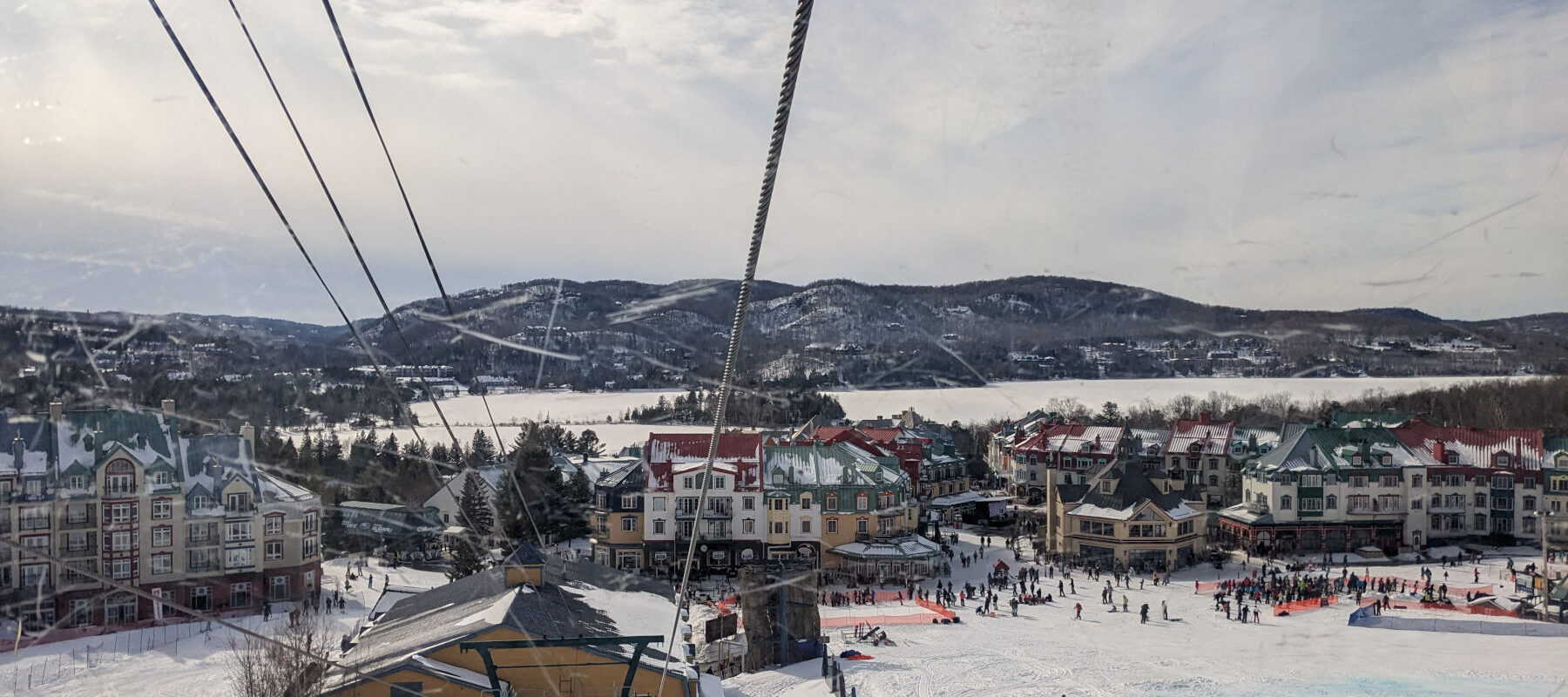





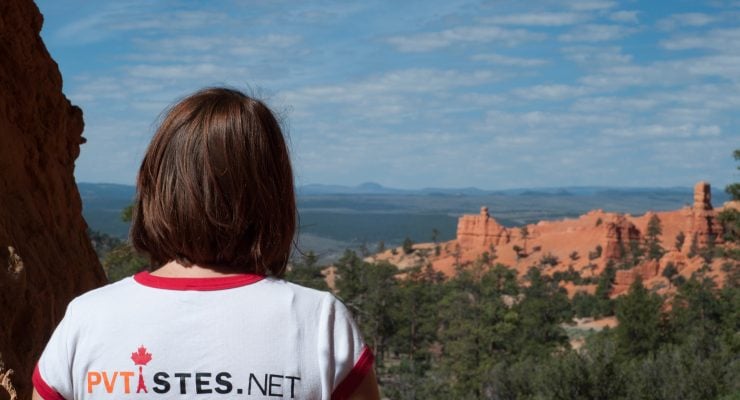
0 comments
{{like.username}}
Loading...
Load more